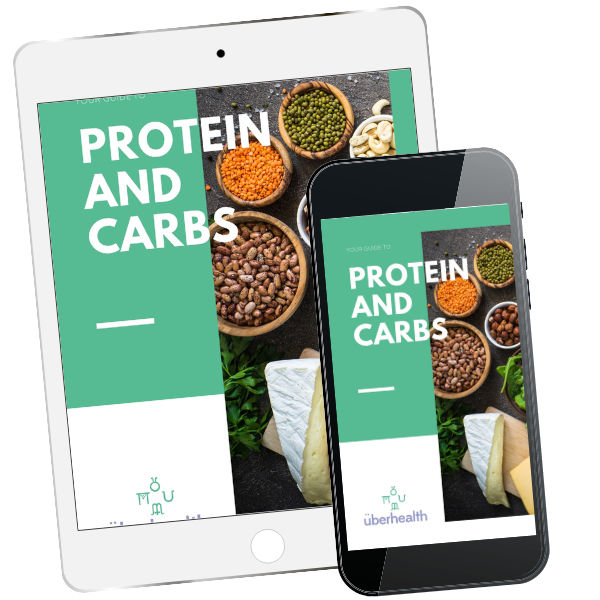Sports Nutritionist vs Sports Dietitian: What’s the Difference

If you’ve been following my emails or blogs for a while, you’ll know that I’m an Australian Naturopath and Sports Nutritionist with over 25 years of clinical experience. Throughout that time, I’ve had the pleasure of working with a wide range of clients — from weekend warriors and first-time marathoners to Ironman competitors and adventurers tackling multi-day events in remote parts of the world.
I’m constantly inspired by the goals my clients set — and the incredible things they achieve.
But one question comes up regularly:
What’s the difference between a Sports Nutritionist and a Sports Dietitian?
And more importantly — who’s the right fit for you?
Defining the Field: Sports Nutrition Explained
Sports Nutrition is a highly specialised field that sits under the broader umbrellas of dietetics and sports science. It’s grounded in research and combines nutrition, biochemistry, and exercise science to support performance and recovery.
To legally use the title “Sports Nutritionist” in Australia, practitioners must undertake specific postgraduate studies — such as a master’s degree or a qualification through the International Olympic Committee (IOC). I was proud to be the first Australian Naturopath to complete the IOC Diploma in Sports Nutrition — a milestone that reflects my deep passion for this area of health.
What About Performance Nutritionists?
You may have come across the term “Performance Nutritionist” on social media or in fitness circles. It’s a newer, unregulated title that doesn’t reflect a specific qualification. Many experienced Naturopaths and Nutritionists who focus their professional development in sports and exercise nutrition may use this term.
They may be highly skilled and passionate — often mentoring under Sports Nutritionists or continuing their education in the field — but legally, they cannot call themselves a Sports Nutritionist unless they hold the specific postgraduate qualifications.
Sports Dietitians: Who They Are and How They Work
Sports Dietitians usually begin their training with a degree in Dietetics. They often work in hospitals, public health settings, and community outreach, helping people manage chronic conditions through food and nutrition.
To specialise in sports, Dietitians pursue additional qualifications — such as a graduate diploma or master's in Sports Nutrition, or training through Sports Dietitians Australia (SDA).
Here’s an easy way to think of it:
➡️ A Dietitian can call themselves a Nutritionist.
❌ But a Nutritionist cannot call themselves a Dietitian.
Sports Dietitians tend to focus on structured meal planning and fuelling strategies rooted in traditional dietetic frameworks.
Where Naturopathy Meets Performance Nutrition
As a Naturopath with a deep interest in sports and performance, my approach sometimes shifts depending on the client's needs. When working with athletes, I may temporarily set aside traditional Naturopathic philosophies (like always avoiding processed foods) in favour of what an athlete’s body actually needs to perform and recover.
Why? Because athletes often have extraordinary dietary demands. The foods that optimise wellness may not be the same ones that fuel an ultramarathon or a back-to-back training block.
Performance Fuel vs Everyday Food
If you’ve seen a Naturopath before for chronic health concerns, you’ll know we typically take a holistic approach — using herbs, therapeutic foods, and lifestyle changes.
But a Sports Nutrition consult may surprise you. You might be advised to consider “performance foods” like glucose gels, sodium chews, or yes — even jelly babies and soft drinks. These have a legitimate place in endurance nutrition when used strategically.
In our work together, you’ll learn to distinguish between when food is medicine, and when food is fuel — and how to use both wisely.
Who Should You Trust with Your Sports Nutrition?
Whether you choose to work with a Sports Dietitian, a Sports Nutritionist, or a highly experienced Naturopath trained in performance nutrition, the most important thing is this:
✅ They understand the demands of your sport
✅ They tailor advice to your body and lifestyle
✅ They know when to push and when to pull back
So, where are you currently getting your sports nutrition advice?
Social media? Other athletes? A podcast that popped up on your feed?
If you're ready for something tailored and evidence-based, I invite you to work with me directly.
Or, if you’d prefer to dip your toes in, check out my Fueling for Fitness course — recently updated with new insights to support athletes of all levels.
FREE RESOURCE


